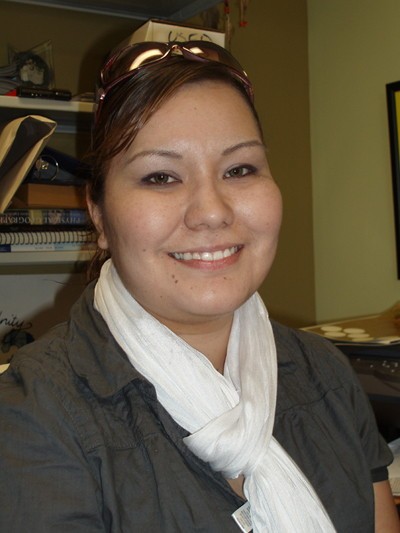Alcohol ban considered by student group
Decision promotes health and traditional values, say Aboriginal Student Council members
The University of Winnipeg’s Aboriginal Student Council (ASC) recently took the first step in an effort to ban all alcohol-related events supported by their group.
Tasha Spillett, the council’s culture and sport representative, proposed a motion to ban the ASC’s year-end social and as well as a referendum question banning alcohol at all group-sponsored events. It will be voted on at the group’s Annual General Meeting (AGM) in October.
The ASC is an elected body representing the U of W’s Aboriginal Students’ Association.
Spillett said the motion was an attempt to distance the council from the violence that often accompanies alcohol consumption. The decision comes in the wake of ASC member Trisha Jones’ death at the hands of a drunk driver in January.
The motion is “an acknowledgment of the effect that alcohol has had on our communities,” Spillett said.
She hopes the decision will promote a focus on health and wellness by redirecting funds to support family and cultural events such as out of town powwows.
“We got elected into positions of leadership and it’s our responsibility to uphold those things,” Spillett said.
Tabetha Linklater, the council’s female representative, said the decision is in tune with traditional teachings.
“It (alcohol) isn’t part of our traditional ways and we want to be a positive role model for our members,” she said.
“I think we just want to go towards a more cultural traditional way of what we’ve been taught.”
Aboriginal Students’ Association members at large will have a chance to vote on the Council’s decision at the October AGM in the form of a referendum question.
“ [Alcohol] isn’t part of our traditional ways and we want to be a positive role model for our members.
Tabetha Linklater, ASC
Spillett and Linklater do not foresee much opposition and they hope this change will be approved and written into the ASC constitution.
While third year education student and association member Nikki (who did not wish to use her real name) supports the decision, she’s not as confident it will be passed at the AGM.
“I think it could go either way,” she said.
But while some students may enjoy taking a load off with a drink, the ASC doesn’t have to support it, she said.
“We’re here to learn, we’re not here to drink. We can drink off campus.”
Ernest C. Bruce, political advisor and liaison for Poplar River First Nation in Manitoba, supports the ASC’s decision. Poplar River has officially been a dry reserve since the 1970s.
“They should be commended because it’s a step toward something better,” he said.
“Alcohol serves no purpose in my traditional life. It’s a social activity for the rest of society. It’s not part of being native,” Bruce said.
He feels alcohol should be banned everywhere, much like smoking has been.
“It’s a question of health and safety.”
While alcohol is banned from the Poplar River community, there are issues with bootlegged alcohol being smuggled in.
Though Poplar River spends significant financial resources policing the smuggled substances, Bruce still feels the ban is worthwhile if it prevents even one car accident, incident of child abuse or family break up.
“Social disorder is usually brought about by alcohol,” he said.
Poplar River’s decision was made based on the holistic aboriginal worldview.
“They took into consideration the safety and well-being of the community as a whole,” Bruce said.
Published in Volume 63, Number 24 of The Uniter (March 19, 2009)







